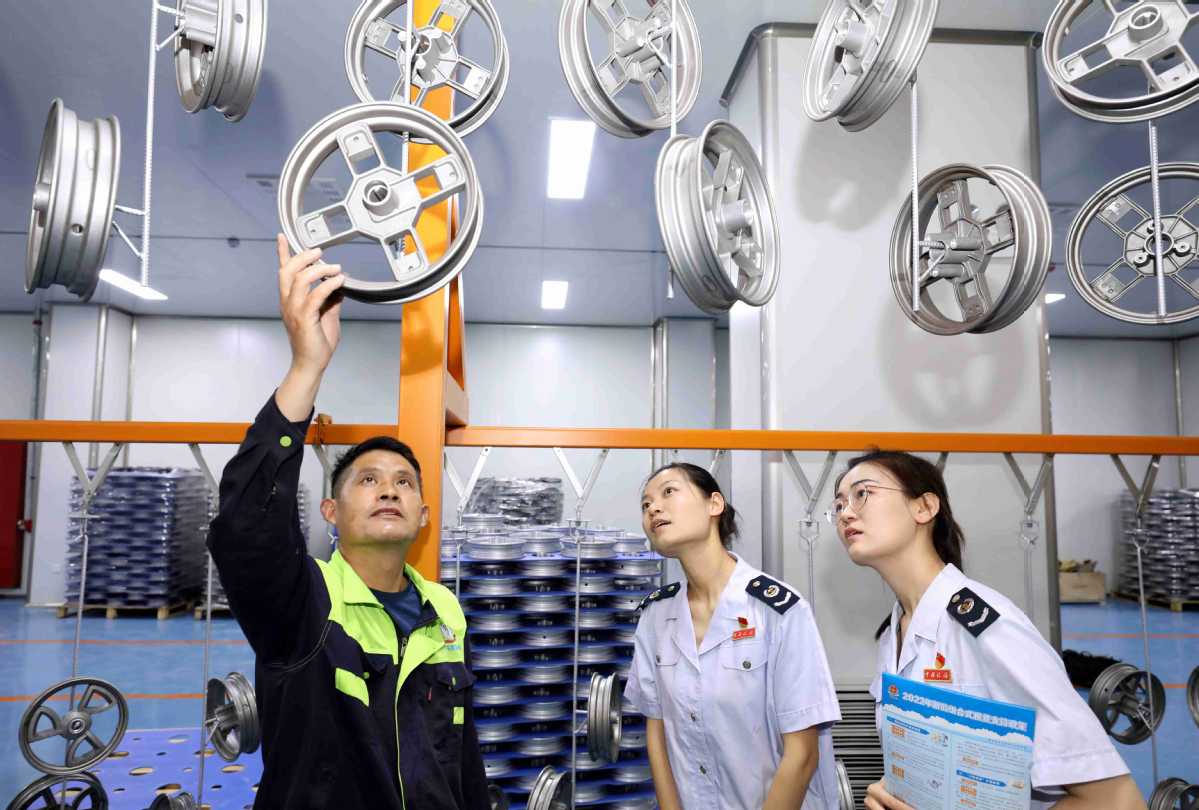After the struggle, hopes rise for biz recovery


Hard-hit small firms ride policies and aid to rebound amid COVID-19 headwinds
Something unusual occurred this year at Beijing's Yuebin Restaurant. The place is known for its tag-China's first private-sector eatery in the era of reform and opening-up. For only the second time in 40 years since opening shop in 1978, Yuebin halted its business for several weeks. COVID-related restrictions to reduce human contact ensured that, like in 2020 when it did so for the first time, again due to the pandemic.
In the normal course, the 40-square-meter restaurant keeps its doors open 365 days a year as its patrons include diners from all around the world, including tourists who throng the famed eating house.
"We take great pride in the fact that our family-themed restaurant has endured many a violent storm and other kinds of choppy weather over the past four decades. I had never expected that we would close our doors even for a day," said Guo Hua, the owner of Yuebin.
Besides seeing its enviable record end, Yuebin, like China's countless micro, small and medium-sized enterprises, or MSMEs, sustained heavy losses. MSMEs in the catering, logistics, cross-border commerce and other sectors, which require human-to-human contact, are among the hardest hit.
For instance, around a quarter of products from Changzhou Hengfeng Special Conductor Co Ltd, a small-scale high-tech enterprise in Jiangsu province, started piling up at its warehouse due to the city's COVID-19 flare-ups in April.
The overstocking punched an 80 million yuan ($11.94 million) hole in Hengfeng Special's finances, creating a big cash flow problem.
According to a survey carried out by a team of the Guanghua School of Management at Peking University in February, the business recovery prognosis for MSMEs does not look bright.
MSMEs said they face mounting pressure from sluggish market demand and rising operational costs. Two-thirds of MSMEs said they see cash flows lasting for no more than three months.
To help them cope with the COVID-19 pandemic's fallout, the Chinese government had launched a slew of policy packages over the past two years. The latest one was announced in May, after a State Council executive meeting chaired by Premier Li Keqiang decided to increase support for MSMEs and self-employed households.
"Supportive policies that have been developed should be delivered at a faster pace, to help enterprises stay alive. Meanwhile, policy support, especially financial assistance, will be stepped up. Banks will be guided toward more proactive services," Li said.


















